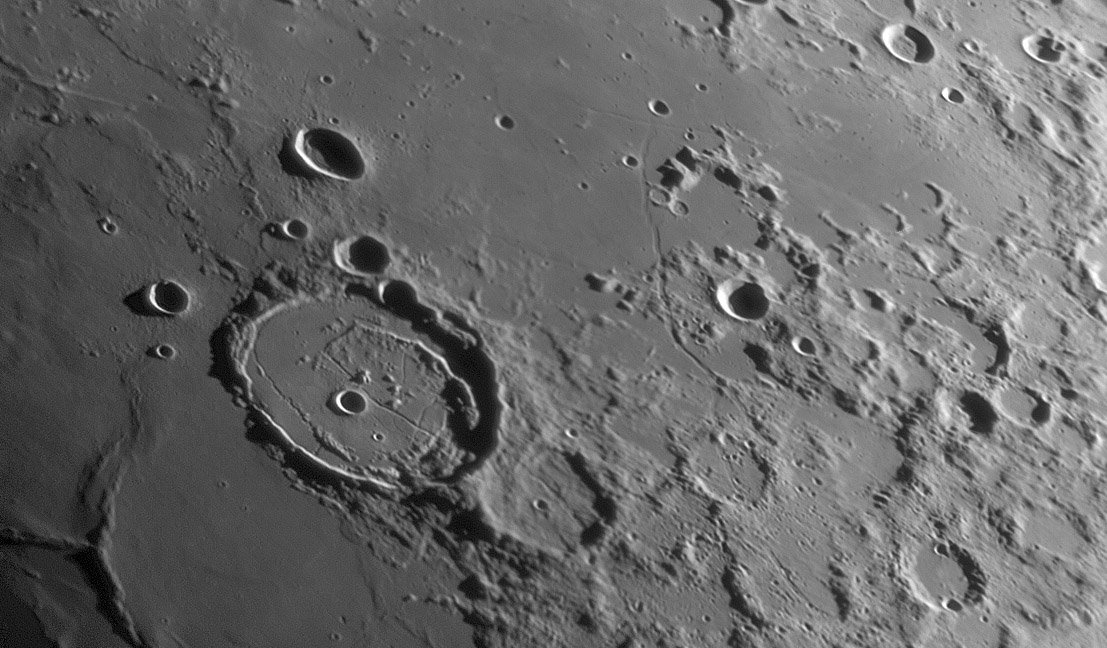
image by Mike Wirths
Its called the Bond Rille, but like James Bond there is an attractive mystery to be explored. The crater G. Bond (not to be confused with W. Bond near the north pole) is the sharp-rimmed, shadow-filled 20 km wide crater at right center. To G. Bond’s west (left) is the long rille. The visibility of the rille varies greatly - it is sharp-edged in its southern and middle parts but shallows and softens to the north. Mike’s image shows something that the Lunar Orbitrer IV image doesn’t: at its north end the Bond Rille makes a T junction with a faint rille that runs about 50 km roughly east-west. The eastern half is depicted on sheet 27 of the LAC chart, but the western end seems to be completely unknown. It also looks like the eastern end of the rille continues as a dimpled trough. Is that real? Near the southern end of the Bond Rille there is a hint (a subtle one) of a linear feature that spans the mare area between the craters G. Bond and Daniell. Could this be another older rille? Oh yes, this image also contains a prominent crater on the left…
Technical Details:
June 1, 2006. 18″ Starmaster + camera Lumenera Infinity 2-2 + 2.5X Powermate barlow + red filter.
Related Links:
Rükl charts 14, 15 & 25
You can support LPOD when you buy ANY book from Amazon thru LPOD!
COMMENTS?
Click on this icon File:PostIcon.jpg at the upper right to post a comment.



